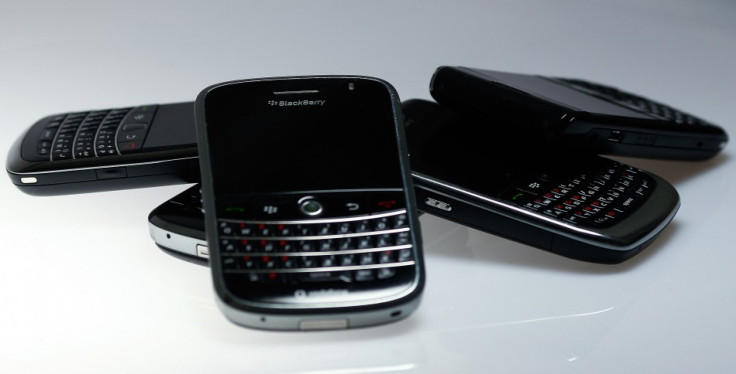RIM Pact With Microsoft: Prelude To A Takeover?

BlackBerry developer Research in Motion (Nasdaq: RIMM) said it’s signed a deal with Microsoft (Nasdaq: MSFT), the world's biggest software company, to use Microsoft extended file allocation for new smartphones, most likely BlackBerry 10.
The troubled Waterloo, Ontario company will license Microsoft’s current Extended File Allocation Table (exFAT), which enables quick transfer of big audiovisual files. It also allows for easy interchange with desktop PCs and other electronic devices.
Microsoft, of Redmond, Wash., has previously licensed exFAT to consumer electronics giants such as Panasonic Corp. (NYSE: PC), Sony Corp. (NYSE: SNE) and Canon Inc. (NYSE: CAJ).
But as Microsoft is on the verge of finally shipping Windows 8 for smartphones as part of its giant Windows 8 release next month, could the technology pact be a foretaste of a more intimate relationship, such as a takeover?
Investors headed by Jaguar Financial’s Victor Alboini have advocated RIM be taken over for months, or at least be split in half, with a manufacturer acquiring its BlackBerry and BlackBook product lines with an enterprise software company such as Microsoft or International Business Machines Corp. (NYSE: IBM) acquiring the platform that services nearly 80 million BlackBerry devices.
Indeed, after reporting a giant first-quarter loss of $518 million, or 99 cents a share, for the period ended on June 2, new CEO Thorsten Heins said he was open to new alternatives. When he was appointed to the post in January, RIM hired JPMorgan Chase (NYSE: JPM) and Royal Bank Securities (NYSE: RY) for strategic advice.
RIM shares have plunged about 70 percent in the past year, with the result that the entire company is valued only around $3.8 billion in Wednesday trading. By contrast, Microsoft is up 15 percent over the past year, its market capitalization exceeds $261 billion and it reported holding cash and investments above $63 billion on June 30.
To date, Microsoft’s partner list for Windows 8 is rather meager.
Finland’s Nokia Oyj (NYSE: NOK) is its best-known partner, especially because its CEO, Stephen Elop, is a Microsoft veteran who bet the company on Windows 7 and now Windows 8. Nokia, while down to only about 20 percent share in the smartphone category from 22.8 percent a year ago in the second quarter, by Gartner estimates, is still light years ahead of RIM.
RIM’s second-quarter share was a puny 1.9 percent, down from 3 percent a year ago, Gartner estimates.
Last year, when a syndicate headed by Apple (Nasdaq: AAPL), the world's most valuable technology company, won wireless patents from bankrupt Nortel Networks of Canada, RIM and Microsoft were both members of the so-called “Rock Star” syndicate. RIM announced its share of the $4.5 billion deal was $700 million.
To be sure, acquiring RIM would be a huge change for Microsoft, putting in into the manufacturing business for the first time. All of its Xbox units are made by subcontractors. But rival Google (Nasdaq: GOOG), the No. 1 search engine, paid $12.5 billion to acquire Motorola Mobility Holdings in May, giving it a smartphone maker as well as a company whose set-top boxes are in millions of homes.
As well, any non-Canadian company might encounter regulatory and labor issues that could complicate or completely prevent an acquisition.
As well, RIM’s current performance leaves the majority of analysts who cover it advising either to sell or hold the company, with only two recommending a buy, according to Thomson Reuters. For the second fiscal quarter ended last month, RIM’s net loss is expected to swell to $235.9 million, or 67 cents a share, reversing prior-year net income of $419 million, or 63 cents.
J. Moorman, analyst with Standard & Poor’s worries that RIM’s deterioration, as well as the need to invest heavily in getting BlackBerry 10 up soon, argues against the company’s chances. So Microsoft, or any other potential acquirer, would have to deal with these same issues.
Shares of RIM fell 16 cents to $7.22 in Tuesday afternoon trading, while Microsoft shares fell 3 cents to $31.14.
© Copyright IBTimes 2024. All rights reserved.






















